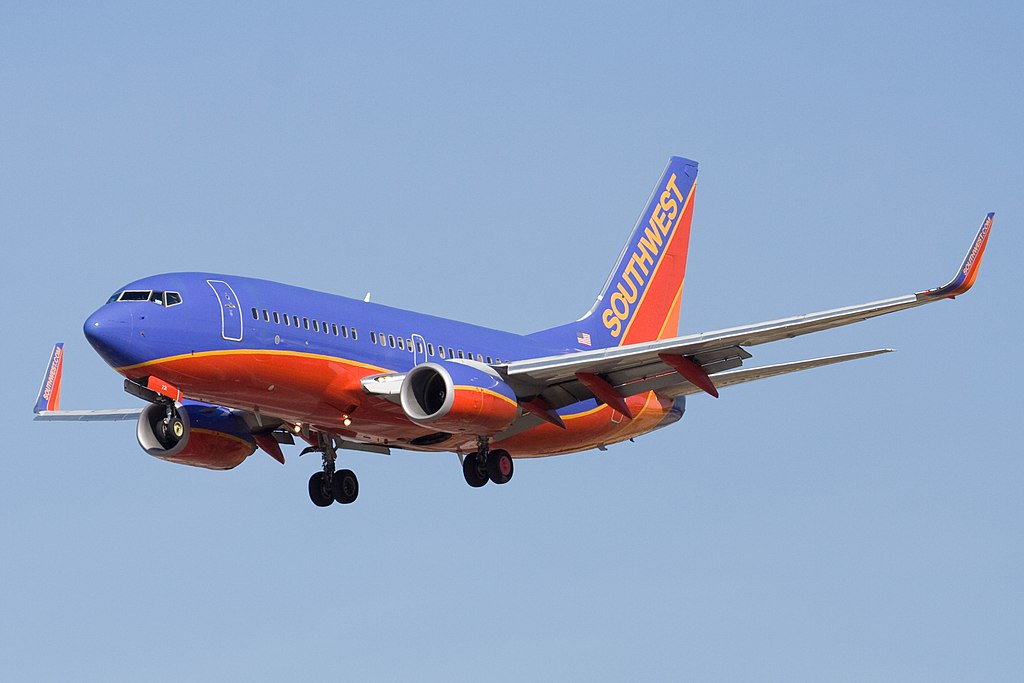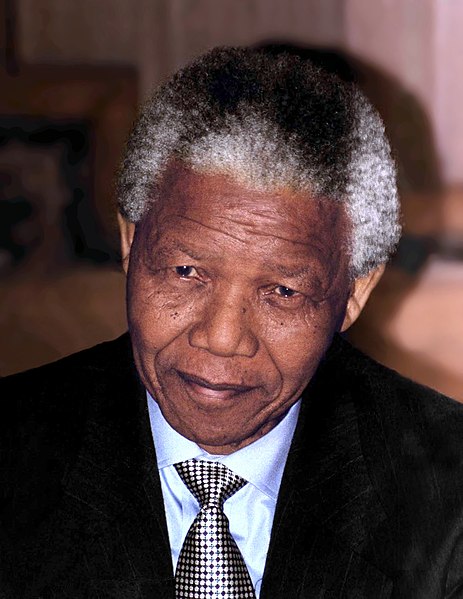The Southwest Way: Leadership Lessons and Stories of a Successful Airline

Taking Off: The Unique Leadership Approach of Southwest Airlines
Southwest Airlines is one of the most iconic and successful airlines in the world. The airline has consistently been ranked as one of the top airlines in the United States for customer satisfaction and has been recognized for its exceptional employee engagement and unique corporate culture. Much of this success can be attributed to the leadership of Southwest Airlines.
In this article, we will explore the leadership lessons and stories of Southwest Airlines, focusing on the leadership style of Herb Kelleher, the Southwest Airlines leadership model, the importance of employee engagement and positive company culture, and the impact of customer service. We will also examine the current state of Southwest Airlines’ leadership and make predictions for the future of the airline.
Southwest Airlines was founded in 1967 by Herb Kelleher and Rollin King. From the beginning, Kelleher’s leadership style was unique and unconventional. He believed in creating a fun and friendly atmosphere for both employees and customers, and he instilled a strong sense of corporate culture that has been the foundation of Southwest Airlines’ success.
Over the years, Southwest Airlines has faced numerous challenges, including economic downturns, rising fuel costs, and increased competition from other airlines. However, the leadership of Southwest Airlines has consistently navigated these challenges with creativity and innovation, and the airline has remained profitable and successful.
Today, Southwest Airlines is known for its exceptional customer service, low fares, and unique corporate culture. The airline’s leadership has been recognized as some of the best in the industry, and many business leaders look to Southwest Airlines for inspiration and guidance on how to create a successful and sustainable organization.
In this article, we will examine the key leadership lessons and stories of Southwest Airlines, and we will explore how these lessons can be applied to other organizations and industries. We will also examine the current state of Southwest Airlines’ leadership and make predictions for the future of the airline.
Overall, the leadership of Southwest Airlines has been a driving force behind the airline’s success. Through the leadership of Herb Kelleher and the Southwest Airlines leadership model, the airline has created a culture of innovation, employee engagement, and exceptional customer service that has set it apart from other airlines. As we explore the leadership lessons and stories of Southwest Airlines, we will see how these principles can be applied to other organizations and industries to create successful and sustainable businesses.
Overview of Southwest Airlines
History and background
Southwest Airlines was founded in 1967 by Herb Kelleher and Rollin King in Dallas, Texas. The airline started with just three planes and serviced only three cities in Texas. However, Kelleher had big ambitions for the airline and envisioned a low-cost airline that would revolutionize the airline industry.
Over the next several decades, Southwest Airlines grew rapidly, expanding its service to cities throughout the United States and eventually expanding into international markets. Today, the airline operates over 4,000 flights per day and services over 100 destinations in the United States and internationally.
Core values and culture
From the beginning, Herb Kelleher instilled a strong sense of corporate culture at Southwest Airlines. The airline’s core values include a commitment to customer service, a focus on low fares, and a dedication to employee engagement and empowerment.
Southwest Airlines is known for its unique culture, which is built on a foundation of fun, humor, and a “can-do” attitude. The airline’s employees are known for their friendly demeanor and willingness to go above and beyond for customers. This unique culture has helped to differentiate Southwest Airlines from other airlines and has been a key factor in its success.
Leadership structure
Southwest Airlines has a unique leadership structure that is designed to empower employees and foster a sense of ownership and accountability. The airline operates under a “Servant Leadership” model, which emphasizes the importance of putting employees first and serving their needs.
The airline’s leadership structure is also designed to be flat, with a relatively small number of management positions and a focus on collaboration and teamwork. This structure allows employees to take ownership of their work and contribute to the success of the airline as a whole.
The history, core values, and leadership structure of Southwest Airlines have been instrumental in the airline’s success. The unique culture and leadership model have allowed the airline to differentiate itself from other airlines and create a strong sense of loyalty among both employees and customers. As we explore the leadership lessons and stories of Southwest Airlines, we will see how these principles have been put into action and how they can be applied to other organizations and industries.
The Leadership Style of Herb Kelleher
Overview of Herb Kelleher’s leadership style
Herb Kelleher’s leadership style was a key factor in the success of Southwest Airlines. Kelleher was known for his unconventional approach to leadership, and he believed in creating a culture of fun, empowerment, and accountability.
Kelleher believed that the success of the airline was dependent on the happiness and engagement of its employees. He recognized that happy employees lead to happy customers, and he worked tirelessly to create a culture that fostered employee engagement and empowerment.
Key leadership lessons from Herb Kelleher
-
Put employees first – Kelleher recognized the importance of putting employees first and creating a culture that empowers and engages them.
-
Create a unique corporate culture – Kelleher believed that a unique and positive corporate culture was essential to the success of Southwest Airlines.
-
Be unconventional – Kelleher was known for his unconventional approach to leadership, and he was not afraid to take risks and try new things.
-
Focus on customer service – Kelleher recognized the importance of customer service and worked tirelessly to create a culture of exceptional service at Southwest Airlines.
-
Lead with integrity – Kelleher was known for his integrity and his commitment to doing what was right for the airline and its customers.
Stories of Herb Kelleher’s leadership in action
One of the most famous stories of Herb Kelleher’s leadership at Southwest Airlines is the “Malice in Dallas” incident. In 1992, a competitor airline launched a campaign to drive Southwest Airlines out of business. The competitor hired a group of actors to dress up as Southwest Airlines employees and stage a fake protest in front of the Southwest Airlines headquarters.
Rather than reacting with anger or retaliation, Kelleher responded with humor and kindness. He invited the actors into his office and offered them drinks and snacks. He also gave them a tour of the Southwest Airlines headquarters and invited them to fly on Southwest Airlines for free.
This incident is a perfect example of Kelleher’s leadership style in action. Rather than getting angry or defensive, Kelleher responded with humor and kindness, defusing the situation and building relationships with the “enemy”.
The leadership style of Herb Kelleher was a key factor in the success of Southwest Airlines. His focus on employee engagement, unique corporate culture, customer service, and integrity have set the standard for leadership in the airline industry and beyond. As we explore the leadership lessons and stories of Southwest Airlines, we will see how these principles have been put into action and how they can be applied to other organizations and industries.
The Southwest Airlines Leadership Model
Overview of the Southwest Airlines leadership model
The Southwest Airlines leadership model is a unique approach to leadership that emphasizes employee empowerment, collaboration, and accountability. The model is designed to foster a culture of innovation, engagement, and exceptional customer service.
The Southwest Airlines leadership model is based on three key components: servant leadership, shared goals, and a focus on results. These components work together to create a culture of ownership and accountability, where employees are empowered to take ownership of their work and contribute to the success of the airline.
Key components of the Southwest Airlines leadership model
-
Servant leadership – The Southwest Airlines leadership model is based on the concept of servant leadership, which emphasizes the importance of putting employees first and serving their needs. This approach to leadership is based on the belief that happy and engaged employees lead to happy customers and ultimately, business success.
-
Shared goals – The Southwest Airlines leadership model also emphasizes the importance of shared goals. Leaders at Southwest Airlines work to align the goals and objectives of the organization with the goals and objectives of individual employees. This alignment creates a sense of ownership and accountability, where employees feel invested in the success of the airline.
-
Focus on results – The final component of the Southwest Airlines leadership model is a focus on results. Leaders at Southwest Airlines are focused on achieving measurable results that drive the success of the airline. This focus on results creates a culture of accountability, where employees are expected to contribute to the success of the airline through their work and actions.
Examples of the Southwest Airlines leadership model in action
One example of the Southwest Airlines leadership model in action is the airline’s approach to safety. Southwest Airlines has a strong commitment to safety, and this commitment is reflected in the leadership model. Leaders at Southwest Airlines work to create a culture of safety by empowering employees to take ownership of safety and encouraging collaboration and communication around safety issues.
Another example of the Southwest Airlines leadership model in action is the airline’s approach to innovation. Southwest Airlines has a long history of innovation, from its early days as a low-cost airline to its more recent focus on digital transformation. Leaders at Southwest Airlines encourage innovation by empowering employees to take risks and try new things, and by creating a culture of collaboration and communication around innovation.
The Southwest Airlines leadership model is a unique and effective approach to leadership that has set the airline apart from its competitors. By emphasizing servant leadership, shared goals, and a focus on results, the Southwest Airlines leadership model has created a culture of ownership and accountability that has been instrumental in the airline’s success. As we explore the leadership lessons and stories of Southwest Airlines, we will see how these principles have been put into action and how they can be applied to other organizations and industries.
The Importance of Employee Engagement
Overview of the importance of employee engagement
Employee engagement is a critical component of any successful organization, and Southwest Airlines is no exception. The airline has long recognized the importance of employee engagement and has worked to create a culture that fosters engagement and empowerment.
Employee engagement is important for a number of reasons. First, engaged employees are more productive and efficient, which can lead to increased profitability and success for the organization. Second, engaged employees are more likely to stay with the organization, reducing turnover and improving retention rates. Finally, engaged employees are more likely to provide exceptional customer service, which can lead to increased customer loyalty and satisfaction.
How Southwest Airlines fosters employee engagement
Southwest Airlines fosters employee engagement in a number of ways. One of the key ways that the airline does this is through its unique corporate culture. The airline’s culture is built on a foundation of fun, empowerment, and accountability, which creates a sense of ownership and engagement among employees.
Southwest Airlines also fosters employee engagement by empowering employees to take ownership of their work and contribute to the success of the airline. Leaders at Southwest Airlines work to align the goals and objectives of the organization with the goals and objectives of individual employees, creating a sense of shared ownership and accountability.
The airline also fosters employee engagement by providing opportunities for employees to grow and develop within the organization. Southwest Airlines offers a number of training and development programs for employees, including leadership development programs and opportunities for cross-functional training and development.
Results of Southwest Airlines’ focus on employee engagement
The focus on employee engagement at Southwest Airlines has had a number of positive results for the airline. First, the airline has consistently been ranked as one of the best places to work in the United States, which has helped to attract and retain top talent.
Second, the focus on employee engagement has led to increased productivity and efficiency at the airline. Engaged employees are more likely to be motivated and committed to their work, which can lead to increased productivity and efficiency.
Finally, the focus on employee engagement has led to exceptional customer service at Southwest Airlines. Engaged employees are more likely to provide exceptional customer service, which has helped to differentiate the airline from its competitors and build a strong sense of customer loyalty.
The focus on employee engagement at Southwest Airlines has been a critical component of the airline’s success. By creating a culture of empowerment, accountability, and engagement, Southwest Airlines has been able to attract and retain top talent, increase productivity and efficiency, and provide exceptional customer service. As we explore the leadership lessons and stories of Southwest Airlines, we will see how these principles have been put into action and how they can be applied to other organizations and industries.
The Power of a Positive Company Culture
Overview of the importance of company culture
Company culture is a critical component of any successful organization, and Southwest Airlines is no exception. The airline’s unique corporate culture has been a key factor in its success and has helped to differentiate it from other airlines.
A positive company culture is important for a number of reasons. First, a positive company culture can help to attract and retain top talent, which is critical for the success of any organization. Second, a positive company culture can lead to increased employee engagement and productivity, which can lead to increased profitability and success for the organization. Finally, a positive company culture can lead to increased customer loyalty and satisfaction, as employees are more likely to provide exceptional customer service in a positive work environment.
Southwest Airlines’ unique company culture
Southwest Airlines has a unique company culture that is built on a foundation of fun, humor, and a “can-do” attitude. The airline’s employees are known for their friendly demeanor and willingness to go above and beyond for customers.
One of the key components of the Southwest Airlines culture is a sense of empowerment and ownership among employees. Leaders at Southwest Airlines work to create a culture of accountability and ownership, where employees feel invested in the success of the airline and are empowered to take ownership of their work.
Another key component of the Southwest Airlines culture is a focus on collaboration and teamwork. The airline’s leadership structure is designed to be flat, with a relatively small number of management positions and a focus on collaboration and teamwork. This structure allows employees to take ownership of their work and contribute to the success of the airline as a whole.
Examples of Southwest Airlines’ company culture in action
One example of the Southwest Airlines culture in action is the airline’s approach to customer service. Southwest Airlines is known for its exceptional customer service, and this is largely due to the airline’s unique culture. Employees are empowered to take ownership of customer service issues and are encouraged to go above and beyond for customers.
Another example of the Southwest Airlines culture in action is the airline’s approach to innovation. Southwest Airlines has a long history of innovation, from its early days as a low-cost airline to its more recent focus on digital transformation. This culture of innovation is fostered by a sense of empowerment and ownership among employees, who are encouraged to take risks and try new things.
The unique company culture at Southwest Airlines has been a critical factor in the airline’s success. By creating a culture of fun, empowerment, and accountability, Southwest Airlines has been able to attract and retain top talent, increase employee engagement and productivity, and provide exceptional customer service. As we explore the leadership lessons and stories of Southwest Airlines, we will see how these principles have been put into action and how they can be applied to other organizations and industries.
The Impact of Customer Service
Overview of the importance of customer service
Customer service is a critical component of any successful organization, and Southwest Airlines is no exception. The airline’s commitment to exceptional customer service has been a key factor in its success and has helped to differentiate it from other airlines.
Exceptional customer service is important for a number of reasons. First, it can lead to increased customer loyalty and satisfaction, which can drive business success. Second, it can help to attract new customers and increase revenue. Finally, exceptional customer service can help to build a positive reputation for the organization, which can be a key factor in attracting and retaining top talent.
How Southwest Airlines prioritizes customer service
Southwest Airlines prioritizes customer service in a number of ways. First, the airline empowers its employees to take ownership of customer service issues and encourages them to go above and beyond for customers. This empowerment creates a culture of exceptional customer service, where employees are motivated to provide the best possible experience for customers.
Second, Southwest Airlines prioritizes customer service by investing in training and development programs for employees. The airline offers a number of training programs focused on customer service, including programs focused on empathy, conflict resolution, and effective communication.
Finally, Southwest Airlines prioritizes customer service by listening to feedback from customers and taking action to address issues and improve the customer experience. The airline regularly surveys customers to gather feedback on their experiences and uses this feedback to make improvements to its products and services.
Examples of Southwest Airlines’ exceptional customer service
One example of Southwest Airlines’ exceptional customer service is the airline’s approach to seating. Unlike other airlines, Southwest Airlines does not have assigned seating. Instead, passengers are allowed to choose their own seats on a first-come, first-served basis.
While this approach can lead to some chaos and confusion during boarding, it also creates a unique opportunity for exceptional customer service. Southwest Airlines employees are trained to help passengers find seats and make sure that families are seated together. This approach has helped to create a sense of camaraderie among passengers and has contributed to the airline’s reputation for exceptional customer service.
Another example of Southwest Airlines’ exceptional customer service is the airline’s approach to handling flight delays and cancellations. While flight delays and cancellations can be frustrating for passengers, Southwest Airlines employees are trained to handle these situations with empathy and understanding. The airline provides regular updates to passengers and works to find alternative flights or accommodations for affected passengers.
Southwest Airlines’ commitment to exceptional customer service has been a critical factor in the airline’s success. By empowering employees, investing in training and development programs, and listening to customer feedback, the airline has been able to differentiate itself from other airlines and build a loyal customer base. As we explore the leadership lessons and stories of Southwest Airlines, we will see how these principles have been put into action and how they can be applied to other organizations and industries.
The Future of Southwest Airlines’ Leadership
Overview of the current state of Southwest Airlines’ leadership
Southwest Airlines’ leadership has been a key factor in the airline’s success. The airline has a long history of innovative and unconventional leadership, driven by the vision of its founder, Herb Kelleher. Today, the airline’s leadership continues to prioritize employee engagement, exceptional customer service, and a unique corporate culture.
Gary Kelly, who has been with Southwest Airlines since 1986, currently serves as the airline’s CEO. Under Kelly’s leadership, Southwest Airlines has continued to innovate and grow, expanding its route network and investing in new technology to improve the customer experience.
Predictions for the future of Southwest Airlines’ leadership
The future of Southwest Airlines’ leadership is likely to be shaped by a number of factors, including changes in the airline industry and the evolving needs of customers. One key trend that is likely to shape the future of Southwest Airlines’ leadership is the continued growth of low-cost carriers and the increasing competition in the airline industry.
To remain competitive in this changing landscape, Southwest Airlines’ leadership will need to continue to prioritize innovation and exceptional customer service. This may require the airline to invest in new technologies and expand its route network to meet the needs of customers.
Another key factor that is likely to shape the future of Southwest Airlines’ leadership is the changing demographics of the workforce. As younger generations enter the workforce, they are likely to have different expectations and priorities than previous generations. To attract and retain top talent, Southwest Airlines’ leadership may need to adapt to these changing expectations and focus on creating a workplace that values diversity, inclusion, and work-life balance.
The impact of Southwest Airlines’ leadership on the airline industry
Southwest Airlines’ leadership has had a significant impact on the airline industry, setting the standard for innovation, employee engagement, and exceptional customer service. The airline’s unique approach to leadership has inspired other airlines to prioritize these same principles and has helped to shape the industry as a whole.
In particular, Southwest Airlines’ focus on employee engagement and empowerment has had a significant impact on the airline industry. Other airlines have followed Southwest Airlines’ lead, recognizing the importance of engaged and empowered employees in driving business success.
The future of Southwest Airlines’ leadership is likely to be shaped by a number of factors, including changes in the airline industry and the evolving needs of customers and employees. However, one thing is clear: the airline’s commitment to innovation, employee engagement, and exceptional customer service will continue to be a key factor in its success. As we look to the future of the airline industry, Southwest Airlines’ leadership will continue to be a source of inspiration and innovation for other airlines and organizations.
Soaring to New Heights: The Future of Southwest Airlines’ Leadership
Southwest Airlines’ success is a testament to the power of innovative leadership, employee engagement, and exceptional customer service. Over the years, the airline has set the standard for these principles and has inspired other airlines and organizations to follow in its footsteps.
At the heart of Southwest Airlines’ success is a unique corporate culture that prioritizes fun, empowerment, and accountability. This culture has created a sense of ownership and engagement among employees and has been instrumental in driving the airline’s success.
Southwest Airlines’ leadership has also played a critical role in the airline’s success. From Herb Kelleher’s unconventional approach to leadership to Gary Kelly’s focus on innovation and customer service, the airline’s leaders have been instrumental in shaping the airline’s culture and driving its success.
Looking to the future, Southwest Airlines’ leadership will continue to be a source of inspiration and innovation for other airlines and organizations. The airline’s commitment to employee engagement, exceptional customer service, and a unique corporate culture will continue to set the standard for the industry and inspire others to prioritize these same principles.
As we explore the leadership lessons and stories of Southwest Airlines, we see the power of innovative leadership and the impact that a positive company culture can have on an organization’s success. By prioritizing employee engagement, exceptional customer service, and a unique corporate culture, Southwest Airlines has set the standard for the airline industry and has inspired other organizations to follow in its footsteps.
The future of Southwest Airlines’ leadership is bright, and the airline will continue to be a leader in the industry for years to come. As we look to the future, we can learn from Southwest Airlines’ leadership model and apply these principles to our own organizations, creating a culture of engagement, empowerment, and accountability that drives success and inspires others.






